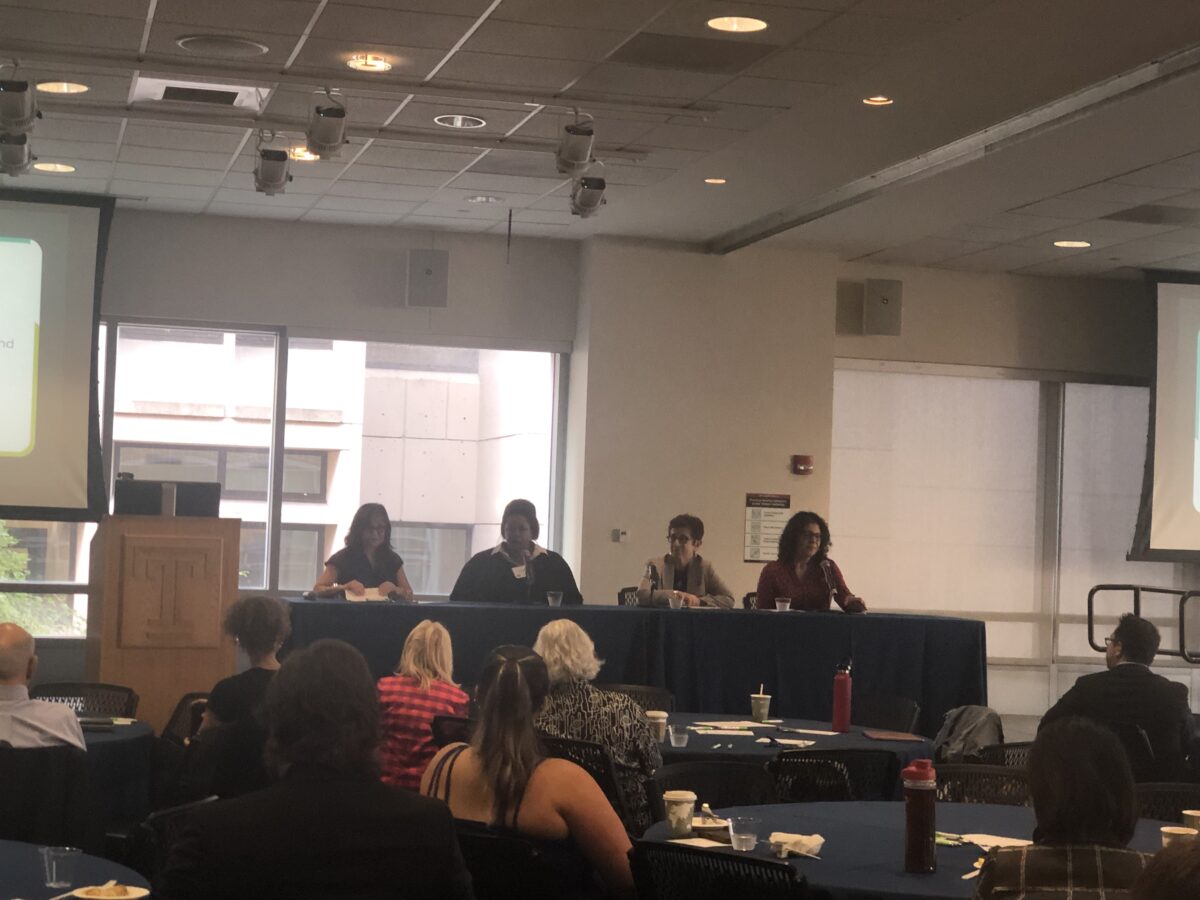Take it from Francella Ochillo, former executive director of Next Century Cities, a national, member-based organization for municipalities and other groups working to connect underserved communities to digital resources, especially broadband internet.
The digital equity community collectively talks often about digital inclusion, she said, because the current system is designed to be exclusive. In her view, the starting point for tackling digital equity is acknowledging that some people have better, faster and cheaper access to technology, and some people are left to rely on public resources.
It’s important for community organizations to perfect the way they explain this issue and the data about digital equity to make a bigger impact — and get more people to care about digital equity in the first place, per Ochillo.
“When we’re telling the story, we need to be able to, number one, know our statistics, but number two, be able to convey why is that also someone else’s problem,” Ochillo said at the Philadelphia-based Technology Learning Collaborative’s (TLC) annual conference during Digital Inclusion Week. (Andy Stutzman, previously the project director at Drexel University and director of operations at Drexel’s ExCITe Center, recently took over her old station as head of Next Century Cities.)
As many as 42 million Americans don’t have access to broadband internet at home.
Ochillo shared her perspective on the challenges facing digital equity work in conversation with other national advocates — challenges that are not unique to Philly, where the conference was held.
These advocates agreed: It’s important to first understand the challenges this work faces before making a plan to move forward.
Resources and awareness
There is never enough money to provide adequate resources for digital equity work, said Gigi Sohn, senior fellow at the Benton Institute for Broadband and Society, a national organization focused on access to affordable broadband. For example, the Affordable Connectivity Program (ACP) is expected to run out of money next year, which would leave families who rely on that subsidy without support.
She’d like to see more philanthropic organizations and large companies get involved in this effort like the way Comcast has. She referenced Comcast’s 12-year-old Internet Essentials program and the telecoms giant’s efforts to spread the word about ACP.

“It’s about enabling full participation in our economy, our democracy, our healthcare system, our education system, and hopefully we can message better, we can get more resources,” Sohn said. “Trust me, I know it’s difficult. It’s been frustrating. But there are more foundations and local foundations also coming into the field.”
Another challenge: lack of awareness from families who are eligible for resources such as ACP. Digital equity advocates need to do more to find hard-to-reach people, talk to them one on one, and make sure they know what resources are available, Sohn said. (Digital navigators in Philly and beyond are doing that work now.)
Digital equity and policy
Marta Urquilla, president of the equitable digital economy-focused Centri Tech Foundation, said digital equity issues are not often prioritized by people in positions of power. She thinks more could be done to create government policies to address digital equity issues.
“I get how painful it was to be at the front end of the pandemic in the lockdown, but we should never have been celebrating kids in McDonald’s parking lots, offloading data to get their homework done,” Urquilla said, referring to some students’ lack of access to home internet when schools went remote at the start of the pandemic. “That is not a win.”
This work is mostly done by community development organizations whose leaders often lack capacity and resources. Urquilla said there needs to be more collaboration and organizations should invite more people in to help with the work.
“Digital equity is a service, it is a strategy towards those futures that we must believe are available to us all,’ she said. “Those inclusive futures in a world where everyone can pursue their aspirations and thrive. This is but a means to an end.”







